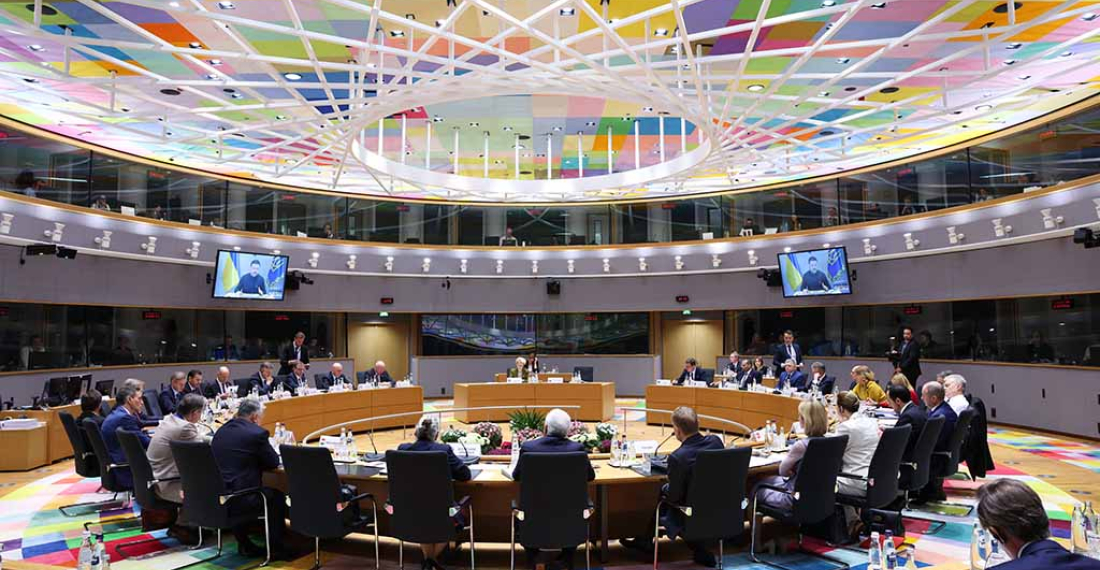European Union leaders said on Thursday that they will continue to support Ukraine, but they did not immediately endorse a call by Ukrainian President Volodymyr Zelenskiy to provide at least 5 billion euros for artillery ammunition purchases. The EU’s leaders also discussed the Commission's defence proposals, which include a call for European countries to pool resources on joint military projects and buy more European arms.
In a statement, all EU leaders except Hungary's Viktor Orban pledged to "continue to provide Ukraine with regular and predictable financial support". They also said EU members should "urgently step up efforts to address Ukraine’s pressing military and defence needs". There was no concrete answer on the 5 billion euros but summit chair Antonio Costa said EU members had promised 15 billion euros in aid for Ukraine in recent weeks and he believed they would increase those pledges further.
The EU's foreign policy chief, Kaja Kallas, had also called on leaders to match words of support for Kyiv with deeds, as U.S. President Donald Trump pushes ahead with his efforts to end the war, including through a rapprochement with Russia. "The stronger they are on the battlefield, the stronger they are behind the negotiation table," Kallas said of the Ukrainians. "We need funds for artillery shells and would really appreciate Europe's support with at least five billion euros as soon as possible," Zelenskiy told the EU leaders meeting in Brussels via video link.
Kallas had previously proposed a pledge up of to 40 billion euros in military aid to Ukraine in 2025, with each country contributing according to its economic size, but that hit resistance from some countries, particularly in southern Europe. Bolstering the EU's own defences also featured on the summit agenda, reflecting deep fears that Moscow may attack an EU member in the coming years and doubts about the future of U.S. protection for Europe via the NATO defence alliance. "We have to rearm ourselves because otherwise we will be the next victims of Russian aggression," Lithuania's President Gitanas Nauseda said.
However, some southern European capitals have been more reticent, reflecting a division between those geographically closer to Russia that have given more aid to Ukraine and those farther away that have given less, as a share of their economies. Spanish Prime Minister Pedro Sanchez said he did not like the term "rearm", which the European Commission has used extensively in its push for more defence spending. "It is important to take into account that the challenges that we face in the southern neighbourhood are a bit different to the ones that eastern flank face," he said.
EU leaders spent the early evening debating economic challenges facing the bloc, notably its bid to stay competitive while decarbonising its industries and catch up with rivals the United States and China in new fields such as AI. They made clear the EU's ability to invest in defence relied on its economic strength and called for progress this year in three fields - cutting red tape, securing affordable and clean energy and creating a more dynamic capital market to channel billions of euros of private money towards required investments.






